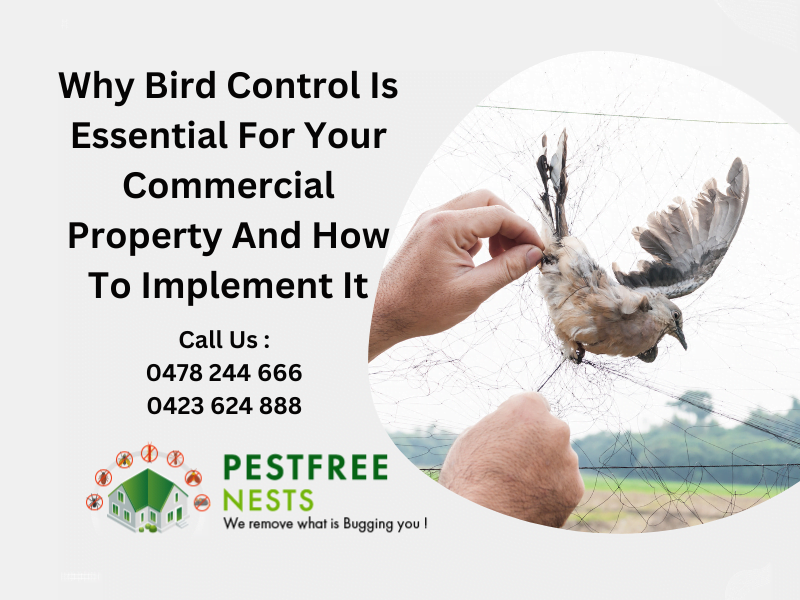
Australia is known for its stunning landscapes, diverse wildlife, and unique ecosystem. One particular aspect of this ecosystem, however, has been causing a stir in recent years. Birds, once cherished as symbols of freedom and beauty, have become a source of frustration for many Australians. As a result, Bird Control in Springvale have gained increasing popularity, playing an essential role in maintaining harmony between humans and our feathered friends.
-
The Growing Bird Problem:
Australia is home to a vast array of bird species, ranging from native lorikeets and cockatoos to introduced species like pigeons and starlings. While birds add charm to our surroundings, their increasing numbers have brought about a host of challenges. From agricultural damage to public health concerns, the impact of uncontrolled bird populations cannot be overlooked.
-
Agricultural Impacts:
Agriculture is the backbone of Australia’s economy, but bird infestations can pose a significant threat to farmers. Flocks of birds descending upon crops can lead to substantial financial losses. Pecked fruits, damaged grain fields, and contaminated produce are just a few of the issues farmers face. Bird Control in Clayton, such as bird netting and scare tactics, are now widely employed to protect crops, and preserve agricultural livelihoods.
-
Urban Nuisance:
Birds that have adapted to urban environments can quickly become a nuisance. Pigeons, in particular, are notorious for creating problems in city centres. Their droppings deface buildings and pose health risks due to the potential spread of diseases. Furthermore, their constant cooing and roosting habits can disrupt the peace and quiet of urban dwellers. The rising popularity of bird control is driven by the need to mitigate these issues and maintain liveable urban spaces.
-
Preserving Native Ecosystems:
Australia boasts a rich tapestry of unique flora and fauna. However, the presence of introduced bird species, such as the Indian Myna, has led to detrimental effects on native bird populations. These invasive species compete for nesting sites, food resources, and often prey on smaller native birds. To protect the delicate balance of the Australian ecosystem, Bird Control in Noble Park are necessary to manage and mitigate the impact of introduced bird species.
-
Aviation Safety:
The safety of air travel is paramount, and birds pose a significant risk to aircraft. Bird strikes can cause severe damage to airplanes, endangering passengers, and crew. Australian airports employ various bird control methods, including habitat management, sonic deterrents, and trained falcons, to ensure the safety of air traffic. These measures have proven effective in reducing bird-related incidents, safeguarding both aviation infrastructure and passenger well-being.
-
Ethical Considerations:
While the need for bird control measures is evident, it is essential to approach the issue with sensitivity and respect for wildlife. Australians are known for their love of nature, and striking a balance between bird control and conservation efforts is crucial. Implementing humane methods, such as bird repellents and exclusion techniques, ensures the well-being of both birds and humans.
As Australia grapples with the challenges posed by burgeoning bird populations, Bird Control Springvale has emerged as a necessary solution to safeguard various aspects of our lives. From protecting agriculture and urban spaces to preserving native ecosystems and aviation safety, the rising popularity of bird control measures reflects our commitment to coexist harmoniously with nature. By implementing effective and ethical strategies, we can strike a balance that allows us to appreciate the beauty of our avian neighbours while mitigating the problems associated with their increasing numbers. Together, let us embrace the rising popularity of bird control from Pest Free Nests as a vital tool in maintaining the delicate balance between humans and our feathered friends.
For any questions or to schedule a consultation, please contact us at Phone: 0423 624 888